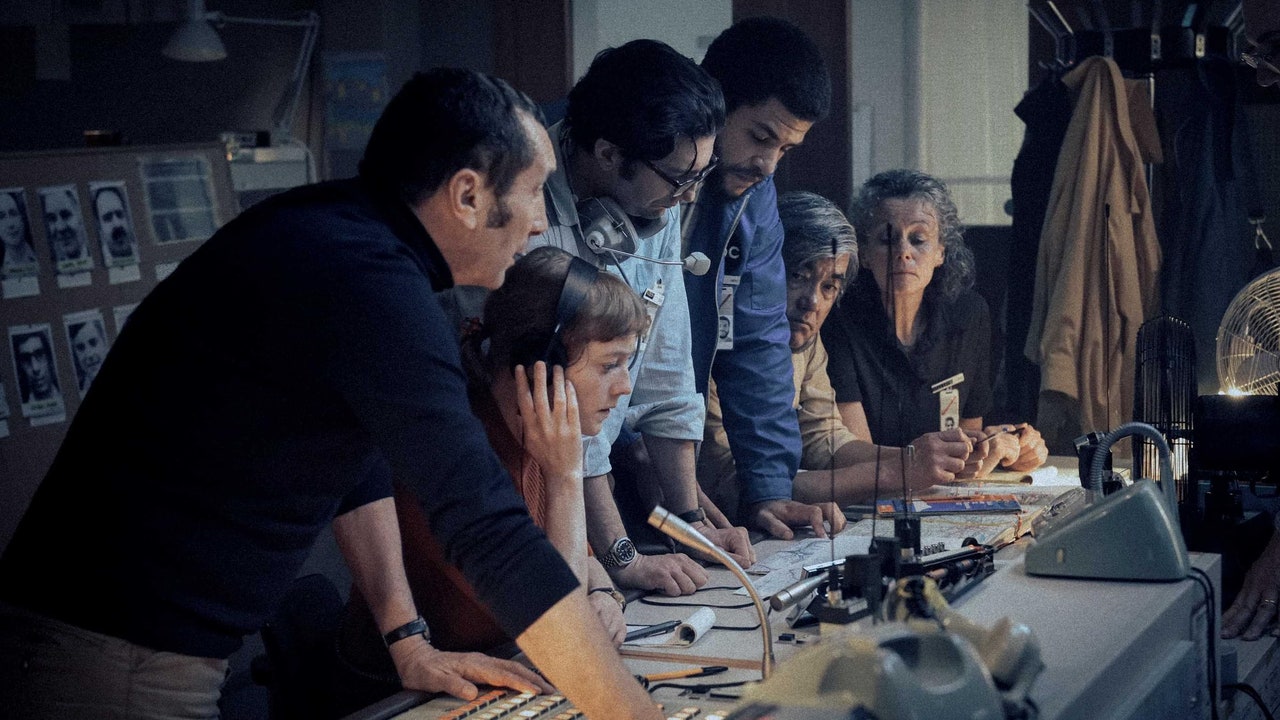While most of September 5’s characters are based on real people, German star Leonie Benesch (The Teachers’ Lounge) was given a relatively blank canva
While most of September 5’s characters are based on real people, German star Leonie Benesch (The Teachers’ Lounge) was given a relatively blank canvas. Tim Fehlbaum’s historical film, which dramatizes the hostage crisis at the 1972 Munich Olympics, focuses largely on ABC Sports newsmen making rapid-fire decisions to guide their broadcast, with Benesch’s Marianne Gebhardt serving as a crucial intermediary. A translator fluent in both German and Hebrew, Marianne walks a fine line as her information and her interpretation helps determine the reporting’s trajectory. Because she was portraying a composite character, Benesch could craft Marianne in her own image.
“I met up with a translator and picked her brain about what kind of mind frame or zone they go to when they listen with one ear, and speak out words they just heard seconds ago,” Benesch says. For a broader overview of the film’s real-life events—in which 11 Israeli athletes and coaches were kidnapped from the Olympic Village, eventually dying after a failed rescue attempt—Benesch sought out the German podcast Himmelfahrtskommando (in English, Suicide Mission), in which journalist Patrizia Schlosser interviews her father, who was a police officer assigned to save the hostages. “We learn about everything that happens from different [perspectives],” Benesch says. “The German authorities, the police on the ground. They actually go to Tel Aviv to meet the widow of one [victim].”
Upon hearing this detail, Benesch’s September 5 costar, Peter Sarsgaard, turns toward her and asks: “Is that podcast in English?” She shakes her head with a laugh: “You have to learn German.”
For a project that they finished shooting well over a year ago, the cast of September 5 remain deeply invested in the particulars of their film’s story and impact. Sitting together on a cold mid-November morning in Los Angeles, they describe how they approached their roles with enormous research and empathy, a key combination for a drama that never feels like a staid retelling. They had a great deal of information to work with, but knew there was a point when they’d need to set aside the data and do more intricate, dramatized emotional work.
Sarsgaard plays Roone Arledge, who was president of ABC Sports in 1972 and an enormously consequential figure through to his death in 2002. (He went on to create major series like Nightline and 20/20.) In the film, his planned serene evening at home turns into an all-nighter when his network gets the chance to lead on a major, global news story. “I really read about him, I knew about him,” Sarsgaard says. But the key to unlocking Roone as a character was to look beyond what he read in books or saw in the script.
“He had this family that’s barely alluded to in the story, but he’s the guy who really wants to be with his family—something I very much identify with,” Sarsgaard says. “When I’m at work, like him, I really don’t think about my family that much. I am a very focused person in that way—and that’s what I sensed about him. He’s living a kind of dual life.”
As Roone oversees coverage of the event alongside operations head Marvin Bader (Ben Chaplin), he taps a control-room administrator named Geoffrey Mason (John Magaro) to lead the broadcast. Together, they wade through ethical dilemmas and corporate interference while trying to be as right and as speedy as possible—a prelude to today’s 24-hour news cycle, where speed can get in the way of precision.
“Because of the constraints of the storytelling, Jeff also becomes a bit of an amalgamation,” Magaro explains. “In reality there was a producer and a director, but in our version Jeff becomes the director as well and calls the show.”
Mason, who’s still energetic in the industry, spoke extensively with Magaro before filming, bringing him into actual sports control booths. Magaro shadowed the sports news veteran at CBS for about two months of Sunday Night Football. There, he learned the enormous shorthand of someone familiar with that environment, and also discovered its kinetic, almost blinding energy.
“You realize for those people it’s almost like a drug,” Magaro says. “Once they go live, there’s no room for breath.” When you’re suddenly documenting a budding tragedy, gathering and communicating cryptic information in real time, that experience takes on an especially heightened quality. “That’s something that Jeff really hammered home to me: There was no time for him to think on that day. They were just calling the show. They had to stay on the air,” Magaro says. “There was no chance to be moralistic about what they were doing.”
“I’ve done submarine movies where the actors paste garbly lines on the wall and have numbers for places where they’re going to put their hands,” Sarsgaard says, before turning to Magaro. “It’s actually a case where people wouldn’t bat an eye if you had just pasted shit everywhere.”
But Magaro did no such thing. He sounds like a control-room veteran from his first scene in September 5, with a command over both the industry’s garbly jargon and the specific buttons that need pushing at specific times. “We would have those conversations: Well, what button is it? Why am I pressing that button? Why am I using this phone? Why is it going through?” Magaro says. “Everything had to have a purpose.”

COMMENTS